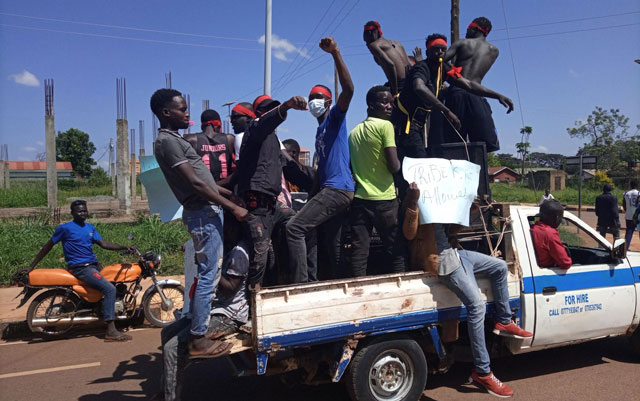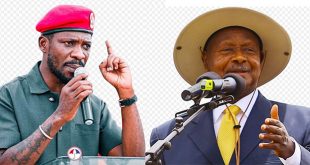
How rapid economic growth and improving quality of life are causing mass discontent
THE LAST WORD | ANDREW M. MWENDA | There is widespread anger especially among the youths in Uganda’s urban areas, but most pronounced in Kampala. Very many commentators on current affairs think this is a result of poor economic performance, resulting in joblessness and poverty. These people argue that if we could sustain growth that creates jobs for the unemployed or underemployed, and if these jobs earned these youths good money, this anger would disappear. These arguments make logical sense but they are empirically wrong.
The mood of any population segment is determined by many factors, economic security being only one. Historical experience shows that economic success, more than economic stagnation or even retrogression, has a higher propensity to generate anxiety leading to mass anger and frustration. This doesn’t mean that economic growth inevitably creates mass discontent. Rather what we learn from history, the only laboratory of human experience, is that the public mood is shaped more by political mobilisation (siasa or ideological hegemony) than economic and social reality.
Take the example of the industrial revolution in Western Europe and its offshoots in North America (USA and Canada) and Oceania (New Zeeland and Australia). It transformed these countries from poor agrarian societies into modern affluent nations. Yet this transformation was occasioned by spreading mass anger among urbanising constituencies, leading to such extremist ideologies as communism, fascism, nihilism, terrorism and anarchism.
More than these ideologies, there was the spread of suicide among urban social groups. Indeed in `Suicide; A Study in Sociology’, (1897), Émile Durkheim grappled with the great mystery of his time: why a staggeringly high number of Europeans chose to kill themselves in an age of rapid economic growth and prosperity, rising literacy alongside accelerated communications and increasing self awareness. The explanation was simple but fundamental and found the best expression in Samuel Huntington’s 1968 work, `Political Order in Changing Societies’.
According to Huntington, as economic development peaks apace, many people become educated and urbanised. This makes them become politically active in ways that impinge on the central government. Secondly (and this is specific to late developers), as people become more educated and urbanised, they are exposed to the outside world. They see the wealth of the rich countries and the wealthy in their own country. Finally, economic growth initially leads to increased inequality as people see others doing relatively better.
This combination leads to rising expectations. Yet in the short term available opportunities cannot meet rising expectations. The mismatch between expectations and available opportunities leads to social frustration. Rapidly developing countries need political institutions capable of handling this expanded participation otherwise it will assume destabilising forms such as riots, strikes, demonstrations, protests or even armed struggle. Often the solution to this is corruption, to buy off such centers of discontent (see President Yoweri Museveni buying off Full Figure and Kusarira). But this too is liable to simulate instability in the long run.
For Huntington, strongly institutionalised polities socialise (i.e. formally and informally induct) those social groups entering politics into norms and channels of action that are prescribed by existing structures. This is what leads to civic politics. However, weakly institutionalised polities are overwhelmed by these new social groups which enter politics (participate) on their own terms leading to a situation where (to use Huntington’s words), “the wealthy bribe, students riot, mobs demonstrate, workers strike and the military coup.” In such situations, the solution is not to give in to the often-unrealistic demands of these social groups but to repress them.
South Korea epitomised this contradiction (rising prosperity stimulating mass anger) during its period of transformation from a backward and impoverished agricultural economy into an advanced, rich industrial society. Yet during this period (1960 to 1990), as South Korea was rapidly industrialising it equally faced one of the highest levels of social anger leading to incessant assassinations, demonstrations, coups, strikes and riots. In those 30 years it went through four very unstable and repressive military governments before giving way to democracy in the 1990s.
Yet Singapore and Taiwan went though the same process of rapid structural change as China is doing today without such upheaval. Why? In these countries, ruling parties sustained an active effort at political mobilisation to build an elite consensus around growth and transformation. This is the lesson NRM has failed to learn i.e. that rapid structural change needs a large dose of political mobilisation (siasa) to avoid its destabilising effects – incessant strikes, demonstrations and riots. The same fate has befallen Ethiopia, Africa’s fastest growing economy but not Rwanda, Africa’s second fastest growing economy. Why? It seems Kigali took the path of China, Singapore and Taiwan i.e. it thinks better.
Two countries in Africa epitomise the influence of political mobilisation on their citizens – Tanzania and former Zaire now the Democratic Republic of Congo (DRC). Under its founding president, Julius Nyerere, Tanzania suffered terrible economic decline. The country’s GDP shrunk by 40% during his 24 years rule as population increased. Yet Tanzanians continued to love and respect Nyerere and believed (because of his earnestness combined with effective political mobilisation) that even where he failed, his mistakes were a result of a genuine and sincere effort to build their country.
On the other hand, between 1965 and 1989, Mobutu Sese Seko of Zaire presided over economic disaster but not as disastrous as Nyerere’s. However, most Congolese hated him perhaps because of the social complexity of his country, the low levels of political mobilisation and his own brand of politics and social life i.e. living in luxury mansions and flying on expensive planes etc. Milton Obote in Uganda presided over an economic success story, backed by simplicity in his personal lifestyle and effectiveness in the delivery of social services. But he ran afoul of Buganda, the richest and most educated region and that doomed his legacy.
Here is my point: Uganda has undergone impressive rates of economic growth and structural transformation. Even the blind can see the results of this change. The current anger in the country is not because of the failures of Museveni’s government but its achievements. Success, more than failure, has greater potential to cause instability. The evidence is all around us. The angriest people who want Museveni to go are not ordinary peasants in rural areas picking jiggers from their feet but urban youth on social media. These are young people who have benefited from Museveni’s rule because they have smart phones, can afford to buy data and pay for OTT and can also read and write, especially in English.
****
amwenda@independent.co.ug
 The Independent Uganda: You get the Truth we Pay the Price
The Independent Uganda: You get the Truth we Pay the Price



#Art3
#M7MustGo
Mr Mwenda, no matter how long a lie is told, it can never turn into truth! Whilst it’s true that there have been a lot of changes between 1986 to date (economic growth and development), it’s very misleading to associate this to a single individual – M7 alone. Why? Various reasons below.
1. M7 & his grpup the NRM/A came at the time western capitalist societies had almost dismantled the eastern communist societies. This is why before the complete breakdown of eastern communism in 1990, M7’s govt was trying to gamble with economic communism i.e he tried barter trade when he wanted to exchange tonnes of maize for electricity transformers with The Republic Tanzania around 1987/8.
2. However, with the end of the Cold War in 1990, (effectively the end of eastern communism), the Western Capitalist societies through World Bank and International Monetary Fund (IMF), imposed structural adjustments policies onto less developed countries through liberalization.
3. M7 being an opportunist as he was/ is, wholesomely embraced them without a second thought.
4. He unjudiciously privatized literally every parastatal in Uganda, which led to unfair retrenchment of hitherto civil servants in those parastatals, some of whom have never been compensated for the abrupt loss of employment etc. etc.
Now meanwhile back home in the western capitalist societies, the second industrial revolution was taking place. This revolution gave birth to sophisticated technological advancement such as modern telecommunications technology, e.g handheld mobile phones, softwares etc.
However, in M9’s sense all these things are courtesy of Tibuhaburwa’s ingenuity!
M9 even opines without any slight sense of shame that before M7’s ascendancy to power, there was only one telecommunications company (Uganda telecom, moreover landline), only one Radio station called Radio Uganda and Uganda television (UTV)! but, now there are more telecommunications services and millions of people who own handheld telcom devices than ever before. Granted.
Questions:
1. How many countries in Africa had these advanced telecommunications technologies such as FM Radio stations, televisions, online Internet etc etc apart from Uganda before Tibuhaburwa came?
2. Should the rest of Africa be grateful to Mr Tibuhaburwa for inventing these modern-day advanced technologies and having brought about liberalization policies.
In a nutshell, M7’s done good and bad, but, overall he has, in your own admission destroyed all governance institutions in pursuit of personal authority.
He’s destroyed social fabric of society in pursuit of self-aggrandisement.
That’s why he no longer abhor election theft as he has far excelled in the vice than any previous regime!
The angriest people are weed smokers.
The angriest people are weed smokers. They are staging a campaign of violence. What a dangerous cult that Bobi Wine is leading! He has destroyed very many lives of young people for his blood sacrifice. It has been said that it is not just the blood he is after but the lives. For each life lost, Bobi Wine gains some longevity of his own. Therefore, he is very selfish and a big deceiver. After smoking their cocaine and marijuana they’re simply uncontrollable. They imagine they are flying. Imagine diving from one car to another in order to “protect” Bobi Wine! This is the epitome of madness!